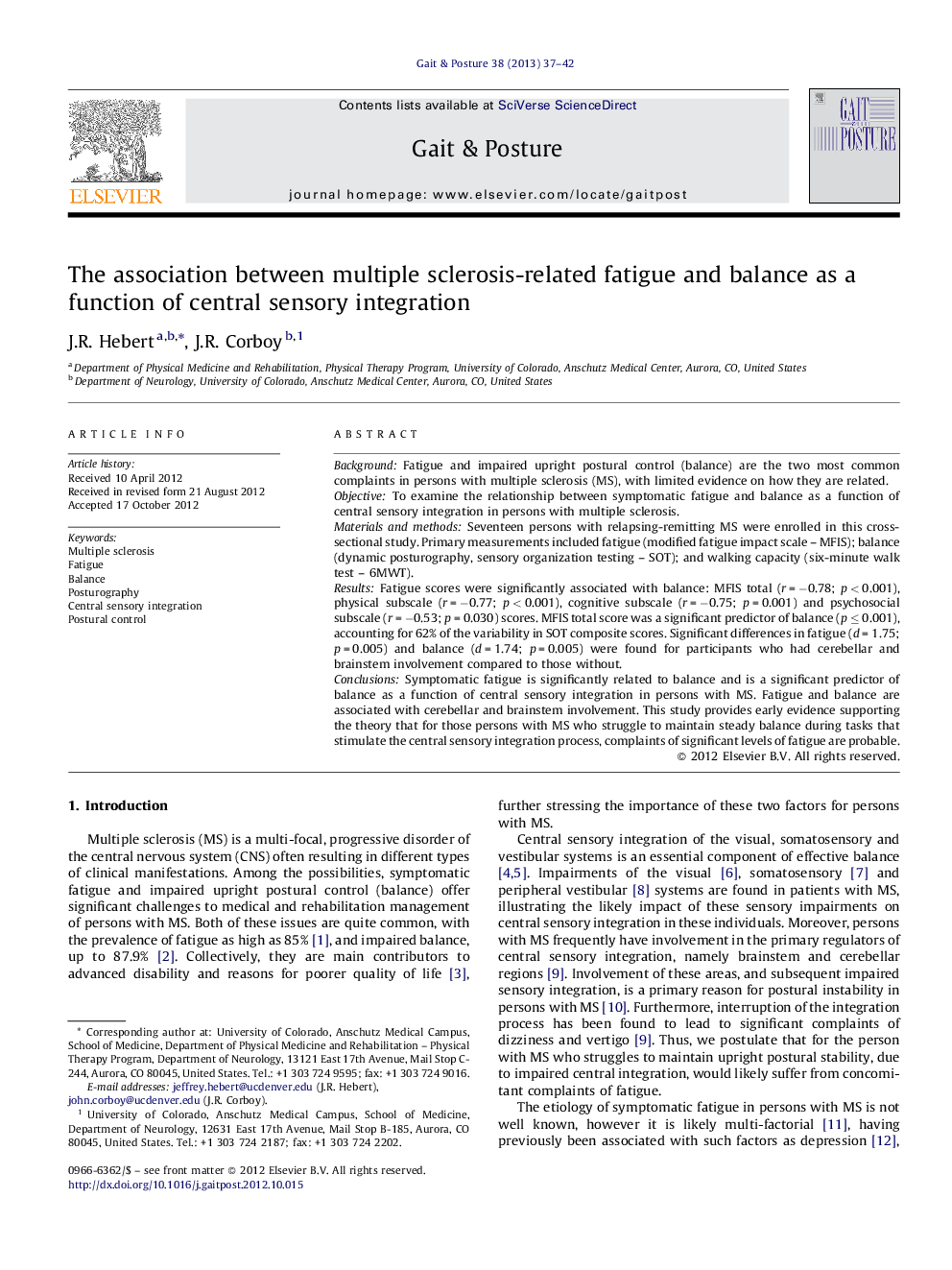| Article ID | Journal | Published Year | Pages | File Type |
|---|---|---|---|---|
| 6207487 | Gait & Posture | 2013 | 6 Pages |
BackgroundFatigue and impaired upright postural control (balance) are the two most common complaints in persons with multiple sclerosis (MS), with limited evidence on how they are related.ObjectiveTo examine the relationship between symptomatic fatigue and balance as a function of central sensory integration in persons with multiple sclerosis.Materials and methodsSeventeen persons with relapsing-remitting MS were enrolled in this cross-sectional study. Primary measurements included fatigue (modified fatigue impact scale - MFIS); balance (dynamic posturography, sensory organization testing - SOT); and walking capacity (six-minute walk test - 6MWT).ResultsFatigue scores were significantly associated with balance: MFIS total (r = â0.78; p < 0.001), physical subscale (r = â0.77; p < 0.001), cognitive subscale (r = â0.75; p = 0.001) and psychosocial subscale (r = â0.53; p = 0.030) scores. MFIS total score was a significant predictor of balance (p â¤Â 0.001), accounting for 62% of the variability in SOT composite scores. Significant differences in fatigue (d = 1.75; p = 0.005) and balance (d = 1.74; p = 0.005) were found for participants who had cerebellar and brainstem involvement compared to those without.ConclusionsSymptomatic fatigue is significantly related to balance and is a significant predictor of balance as a function of central sensory integration in persons with MS. Fatigue and balance are associated with cerebellar and brainstem involvement. This study provides early evidence supporting the theory that for those persons with MS who struggle to maintain steady balance during tasks that stimulate the central sensory integration process, complaints of significant levels of fatigue are probable.
⺠Fatigue is a main determinant of balance as a function of central sensory integration. ⺠Fatigue correlates the most with balance function when individuals participate in more sensory challenging tasks. ⺠Persons with MS who have involvement in cerebellar and brainstem brain regions present with greater concomitant problems of fatigue and impaired balance than those without.
